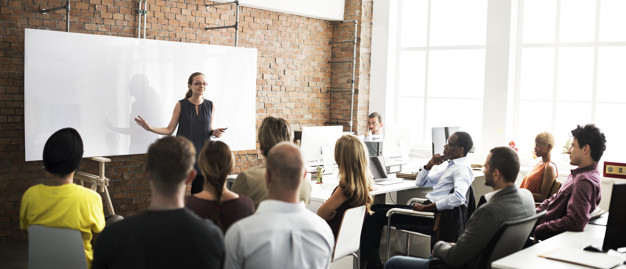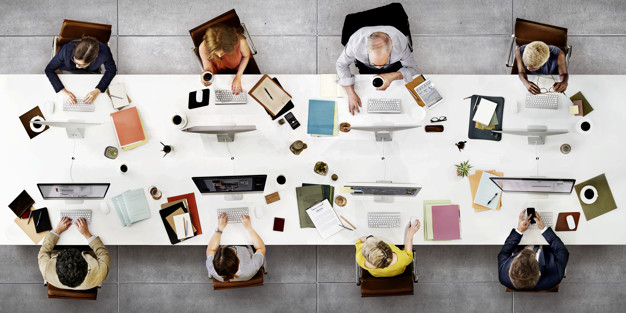LGBT+ Inclusion: embassy or advocate?
They can be summarised as follows:
- When in Rome – the organisation adheres to the norms of the jurisdiction, creating exemptions to policies that prevent discrimination or equal treatment of LGBT+ people;
- Embassy – the organisation implements protective policies and initiatives that support LGBT+ inclusion (e.g. employee networks), creating a safe space for people within the office. The organisation doesn't engage externally; and
- Advocate – the organisation is public in its support for LGBT+ inclusion within the local jurisdiction, which may include external campaigning or advocacy.
Whilst the model can apply as a whole to an organisation, it is designed to work across multiple countries and as a result, it is common for an organisation to exist and act across multiple stages at once.
From my own organisation's perspective, having developed a long-standing commitment and global reputation on LGBT+ inclusion, it was difficult for us to see the value in considering 'When in Rome' and where it might apply to one of our locations. Indeed, doing so would have represented a step back in our current approach and undoubtedly would have elicited a strong response both from our people internally and our clients who often reach out to us for advice around their LGBT+ strategy and networks.
That wasn't something we were prepared to do. It also didn't reflect the approach we were taking across our operations or within our Global Dignity at Work policy – all of our offices are safe spaces for our people and clients, wherever they are located.
In practical terms it meant that we dropped the initial stage within our global charter for IRIS, the firm's LGBT+ and ally network.
 Source: Freepik
Source: Freepik
Of course it doesn’t mean it is possible to adopt the Advocate stance in every country. In some jurisdictions, international organisations are prohibited from influencing local affairs. In others, there are very real and ever-present risks to individuals' safety, which must always be the overriding factor. In these situations, it's appropriate to adopt an 'Embassy' designation.
Within an Embassy, however, there are some practical things that can be done. For example, individuals may consider setting up an internal local network or join regional or global activities, which might include awareness-raising events, campaigns, training or research projects. In my experience, for those jurisdictions designated as embassies, it is important to think about what's possible rather than what cannot be done and to focus on building internal and local capacity in anticipation of change.
Diversity is a developing concept: it has changed and is constantly itself diversifying. That is why, amongst those offices where the advocate approach is most appropriate, it's often possible to see public engagement with LGBT+ organisations, clients, future joiners and other leading LGBT+ organisations. They may be involved in campaigns to support the decriminalisation of homosexuality across the world or to advocate for equal marriage and other LGBT+ rights. Advocates also have an important role to play in acting as 'near harbours' for Embassies within the region, providing access to internal support, connection and even mentoring opportunities for those in less supportive environments.
Taking steps to improve LGBT+ equality and inclusion across the world is complex, and recent years have shown us that progress is not linear. Adopting the Advocate/Embassy framework not only brings consistency and a language with which to better articulate an international organisation’s approach but also provides a robust solution that is responsive to change – both positive and negative. Whilst it may be true that local contexts can and do shift back and forth with time, organisations must remain well placed to support their colleagues and clients, providing a safe working environment and channelling influence appropriately.
 Source: Freepik
Source: Freepik
That's why I was proud that Herbert Smith Freehills recently contributed to Agents of Change, a global LGBT+ business advocacy guide that was launched at the UN Forum for Business and Human Rights in Geneva. The guide outlined a number of opportunities and key considerations relevant to these complex situations, including the power of collective actions and voice.
Now, to help us better understand this ever-changing landscape, we're launching a consultation amongst a number of our long-term community partners from whom we want to better understand where, as a global business, we might create impact and work in partnership. It is, after all, important to recognise that engaging with external voices is an essential component to shape strategic thinking.
Another example of how we've operationalised our Advocate/Embassy approach is through our international mobility practice. In early 2020, we began a series of internal and external conversations with the aim of developing best practice on LGBT+ mobility. In December, we launched a first-of-its-kind research report in partnership with Open for Business and Deloitte on the experiences of LGBT+ people relocating or travelling for business, as well as an internal project to enhance the support and information that we provide on LGBT+ mobility. As a result, all of those considering an international move now receive detailed information on the local laws and customs related to LGBT+, information on LGBT+-inclusive medical insurance/benefits, how to connect with local IRIS members in-country/within the region and the support in place in case of an emergency.
Against the backdrop of an ever-changing context for LGBT+ inclusion and rights, adopting an Advocate/Embassy model allows us to maintain a consistent approach, whilst also responding to the local situation for LGBT+ people – in doing so, we can best support our people and clients, create safe and inclusive environments and use our influence to advocate for change.
Matthew Clements is the Diversity & Inclusion Manager - Global Projects, Herbert Smith Freehills.
Related links
Main menu






